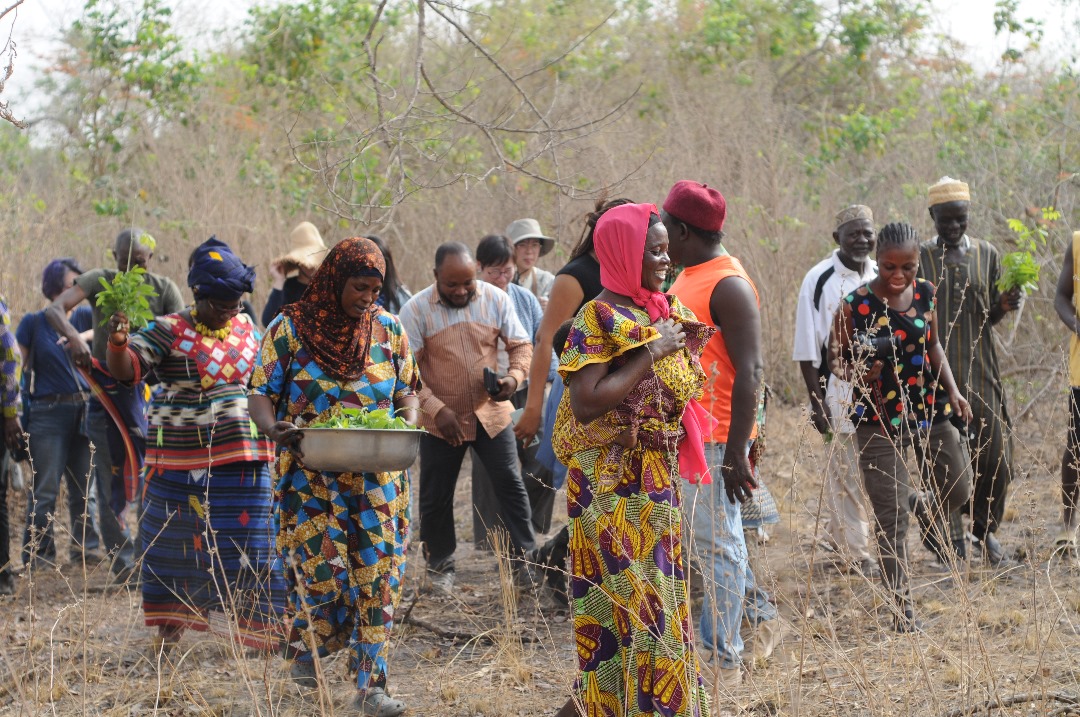Blog

- Event
Engaging with Indigo: Reflections on the 'Indigo as Pedagogy' International Field School
HAB, in collaboration with the Institute of African Studies (IAS) at the University of Ghana and the Taipei National University of the Arts (TNUA), Taiwan recently organized the "Indigo as Pedagogy" International Field School in Ghana. Over the course of 5 days, faculty, communities of practice (indigo practitioners who are indigenous knowledge experts) and students from Ghana, Taiwan and French West Africa spent time together in the co-production of knowledge regarding indigo.
An outcome of the sustained collaboration between HAB, IAS, and TNUA, the aim of this field school was to create a space around the knowhow of indigo that would bring together students, faculty and practitioners in one shared forum. This gathering was preceded by an online course (see "Indigo as Shared Heritage Elective Course") where scholars from the HAB network conducted lectures on indigo knowledge-practices in their respective countries for TNUA students, providing a base of pedagogical understanding that then culminated in this field school.
The field school proper consisted of trips to 3 different sites in Ghana (the indigo craft community in the town of Daboya, the Museum of Natural & Cultural Heritage at Shai Hills, and the Insitute of African Studies at the University of Ghana), and acted as an opportunity to engage in discourse about the pedagogical value of indigo and allowed for everyone involved to fully immerse themselves into the local community's techniques and traditions around the dye.

During the first part of the field school in Daboya, participants were immersed in indigo dyeing practices, which included harvesting indigo plants in the wild (as seen above), as well as a dyeing workshop and masterclass. In the spirit of inter-cultural knowledge exchange, the craft community in Daboya also took part in a local stakeholder forum conducted moderated by Dr. Eric T. Lawer of IAS, as well as in indigo dyeing demonstrations from Taiwanese and West African craft practitioners.

At the second portion of the field school, participants visited the Museum of Natural & Cultural Heritage at Shai Hills (seen above), which served as an interface for dialogue between academics and practitioners to hold discussions about indigo as a community heritage and the impacts of globalisation on the local craft industry. Participants also engaged in indigo dyeing workshops provided by Taiwanese practitioners, supported by those from Daboya and Mali.

On the final section of the field school, participants spent time at IAS, and took part in a storytelling workshop, with groups discussing with facilitators and developing and presenting artistic creations about their experiences in Daboya (see above). These works will later be displayed in Surabaya as part of an ICAS 13 exhibition on indigo.
For further details, check out the field school program below in the "Attachments" section or our previous posts in "Read More".
- Log in to post comments


